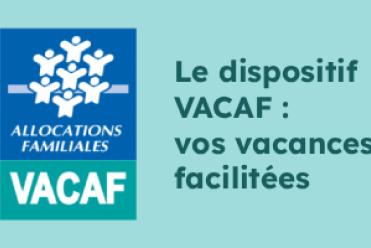
- Home
- What vacation assistance is available?
What vacation assistance is available?
Les vacances des Français : entre envies et contraintes

En 2025, près de 40 % des Français ne partent pas en vacances, et parmi eux, près de 4,8 millions d’enfants sont concernés (source Échos Médias et TF1 Info).
Ce poste de dépense sollicite le budget des ménages, au point que certains le voient aujourd’hui comme un luxe. Bien qu’il soit facile de s’en abstenir une année, les vacances n’en demeurent pas moins primordiales ; elles sont l’occasion de se ressourcer, de resserrer les liens d’une famille, d’un couple, tout en se dépaysant, dans un environnement détaché du quotidien.
De nombreuses initiatives se développent, afin d’endiguer un mal de société, et de permettre aux enfants, actifs, étudiants, retraités, séniors … de profiter de moments uniques, aux quatre coins de la France.
Octroyées par les pouvoirs publics, des organismes privés (mutuelles …), les employeurs ou même des associations caritatives, elles sont diverses et touchent un public plutôt large.
Vous prévoyez de réserver vos vacances, mais ne savez pas comment éplucher les solutions qui s’offrent à vous ? Nous les dépoussiérons !
What are the obstacles today?
Paid vacations came into being in 1936. The famous two weeks (yes, at the beginning!) of paid leave then constituted an unprecedented social structure, a framework for workers: a so-called "stable" job gave the right to a well-deserved vacation. But it still took some time for working people to allow themselves long vacations, and to make them part of their daily routine.
Today, the situation is slightly different. The inheritance remains: a "stable" job, and therefore paid vacation entitlements, but is being supplemented by the upsurge in new ways of working and the succession of periods of insecurity (less visibility), for some working people accumulating contracts, sometimes of short duration.
The fragilization of access to lasting employment is therefore one of the majority brakes on vacations. This complements (and sometimes goes hand in hand with) the financial insecurity of certain households. The absence or weakness of income literally isolates a fringe of the population from the valve that vacations can represent, then unfortunately perceived as expensive, risky.
In addition, and more marginally, the image of holidaysmay itself represent their own brake. We can, in fact, be led to observe a "standardization" of vacations, of the public, conveyed by the media and advertising.
Idealized, the latter can then appear inaccessible and very far from the diversity of the tourist offer that France knows today.
Finally, the practice, the culture of holidays and -sometimes long- departures, is neither innate nor easy. The organization, the procedures (in some cases), the different formulas, access to information ... are all factors that can give rise to insecurity and reluctance, leading some people to simply give up on their project.
But, the various schemes that have come into being tend to reassure and help people wanting to book a vacation. In essence, they simplify access to all types of holidays for eligible audiences. Here's an overview.
What solutions and assistance are available?
VACAFSome Caisses d'Allocations Familiales (CAF) and Caisses de Mutualité Sociale Agricole (CMSA) provide financial assistance for vacations for their beneficiaries; presented in the form of a label, the "Vacances CAF" scheme (VACAF) therefore aims to promote access to school vacations, for families, through a commitment to service: easier access to vacations, a wide choice of destinations throughout France, quality welcome and accommodation.
The Aide aux Vacances Familiales (AVF) de la CAF is granted under certain conditions (resources, number of shares, family quotient). At the beginning of the year, each beneficiary is informed of his or her entitlement to vacation assistance. Length of stay, percentage of aid, maximum amount... are all explained, so that you can plan your vacations ... se-rei-ne-ment!
One of the missions of the Agence Nationale pour les Chèques-Vacances (ANCV) is to enable as many people as possible to go on vacation. The founding values and philosophy of ANCV today make it a French pillar in terms of social cohesion and the fight against exclusion.
This is the rationale behind the birth of Chèques-Vacances. With these, the ANCV offers employees and beneficiaries of works councils, the opportunity to pay for tourist services in the fields of accommodation, transport, catering and leisure activities with service providers located throughout France.
Finally, "Séniors en Vacances" aims to make vacations easier for the elderly, thanks to a program with comprehensive values: preventing loss of autonomy, activating social ties and intergenerational relations by reducing isolation, etc. Various criteria are taken into account, such as age (60 and over), being unemployed or retired, disabilities, the presence of caregivers during stays ...
The advantages for seniors are multiple in terms of vacations: in addition to programs like "Séniors en Vacances", age can confer reduced prices on transport (train, plane, car rentals), or at the hotel. Find out more!
The first employee delegates arrived as early as 1936, with the Front Populaire, but the history of works councils began after the war and the rise of the trade unions. Works councils are then governed by various texts: ordinances, laws ... until they are included in the Labor Code.
Composed of union and staff representatives, they are today well known by employees for the advantages and social benefits they confer: discounts, catering, access to culture, sport, company crèches ...
Always with a social approach, the C.E establish partnerships with tourism operators such as Cévéo, to offer vacation stays at the best prices to their beneficiaries; offers then include access to clubs, entertainment, "well-being" areas , with specific benefits and discounts. Organized holidays, or colonies, for children can also be facilitated by C.E.
To conclude
Powerful drivers of individual fulfillment, vacations today need to be accessible to as many people as possible. With this in mind, various projects have come into being, and are now national benchmarks.
Although the development of low-cost, off-season and long-stay bookings are proving to be particularly economical tricks, several solutions, which we will develop later, exist in parallel: large family cards for transport, Aide aux Vacances Enfants (AVE) des CAF, Aides aux Projets Vacances (APV) from the ANCV ... Finally, giants like the Restos du Cœur or the Secours Catholique also work on a daily basis, voluntarily, to provide answers to families facing the greatest precariousness.
En savoir plus

